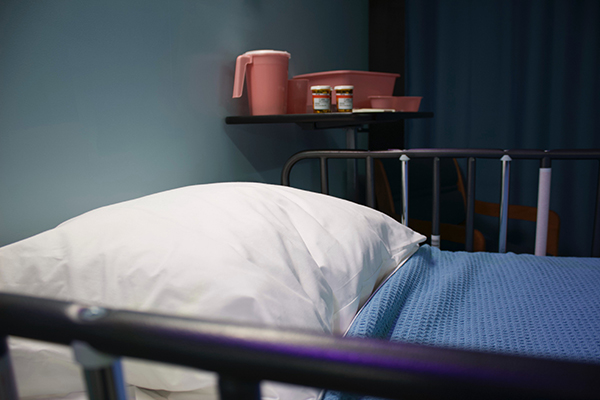
WINDSOR TERRACE — There are nine states in the United State that allow physician-assisted suicide and pro-life supporters are determined to make sure New York doesn’t become the 10th.
“This is a pro-life issue. There are beginning of life issues and there are end of life issues,” said Kathleen Gallagher, director for Pro-Life Activities for the New York State Catholic Conference.
The Catholic Conference is one of several organizations fighting against the passage of the Medical Aid in Dying Act, a bill introduced in the State Assembly on Feb. 1 that would permit doctors to administer lethal drugs to help a terminally ill patient commit suicide.
The New York State Catholic Conference is a partner in the New York Alliance Against Assisted Suicide, a coalition of groups that is urging residents to voice their objections to the Medical Aid in Dying Act by writing and calling their legislators.
New York currently has a law that prohibits assisted suicide. The new bill would carve out an exemption for doctors, even though it would still be illegal for a non-doctor to help someone end their life.
The states that allow assisted suicide are California, Colorado, Hawaii, Maine, New Jersey, New Mexico, Oregon, Vermont, and Washington. In addition, Washington D.C. permits it.
Assisted suicide advocates have re-branded their efforts, labeling the practice as “death with dignity,” a term that Gallagher finds offensive. “It implies that dying a natural death is undignified,” she said.
Assisted suicide runs contrary to Catholic Church teachings and many other religious traditions. And it is illegal in almost all countries around the world.
According to Father Charles Caccavale, a priest from the Diocese of Brooklyn who teaches moral theology at St. Joseph Seminary and College assisted suicide is wrong for the same reason that suicide is wrong.
“In general, the life that we have, we obviously did not bring ourselves into existence. We believe we’ve been brought into existence by the loving hand of God. Ultimately, it is God who has dominion over our life,” he said. “So, to kill oneself is to question God’s dominion over our life. It’s fundamental that we see our human life as a gift from God.”
The United States Conference of Catholic Bishops (USCCB) has spoken out against assisted suicide several times. In a 2011 statement titled, “To Live Each Day with Dignity,” the USCCB raised strong objections to the practice.
“People who request death are vulnerable. They need care and protection. To offer them lethal drugs is a victory not for freedom but for the worst form of neglect. Such abandonment is especially irresponsible when society is increasingly aware of elder abuse and other forms of mistreatment and exploitation of vulnerable persons,” the statement reads.
Bishop Nicholas DiMarzio of Brooklyn has also decried the practice.
“Life is a gift from God and none of us are entitled to take away our own life or to deny the continuance of life to others, even if it be considered an act of mercy,” he wrote in 2018 in his weekly column in The Tablet.
According to the information and research website Pro-Con.org, 63.1 percent of those who committed suicide with the help of a physician between the years 1998 and 2017 in the U.S. suffered from cancer. The vast majority, 94.2 percent, were white; 50.7 percent were male, and most were between the ages of 69 and 89.
Many people turn to assisted suicide to alleviate the physical pain they are suffering, but Father Caccavale said measures can be taken to alleviate pain.
“To kill oneself as a way of alleviating suffering, what you’re doing more than alleviating suffering or eliminating suffering, you’re eliminating the person,” he said. “Nobody does have to die a painful death. We do have the medications to really alleviate that certainly a more tolerable degree.”
When a patient’s death is imminent, their family is often faced with making life and death decisions. Father Caccavale said every situation is different.
“There are situations where medicine is not helping at all. We’re just basically standing in the way of nature taking its course,” Father Caccavale said. “At that point, we accept the limits of the human condition, and it’s perfectly okay to get out of the way, in a sense, and let nature take its course. The person dies, but they die from the disease. With assisted suicide, they died from the action that we took.”
Gallagher charges that assisted suicide can open the door to ugly possibilities — like terminally ill people feeling pressured to consider it.
“When someone has a prognosis of six months or less, they become less and less able to care for themselves — getting in and out of bed, going to the bathroom. This so-called death with dignity right would be available to them while the rest of society gets suicide prevention help; as if their lives are less worthy to be lived because they are disabled,” she said.
